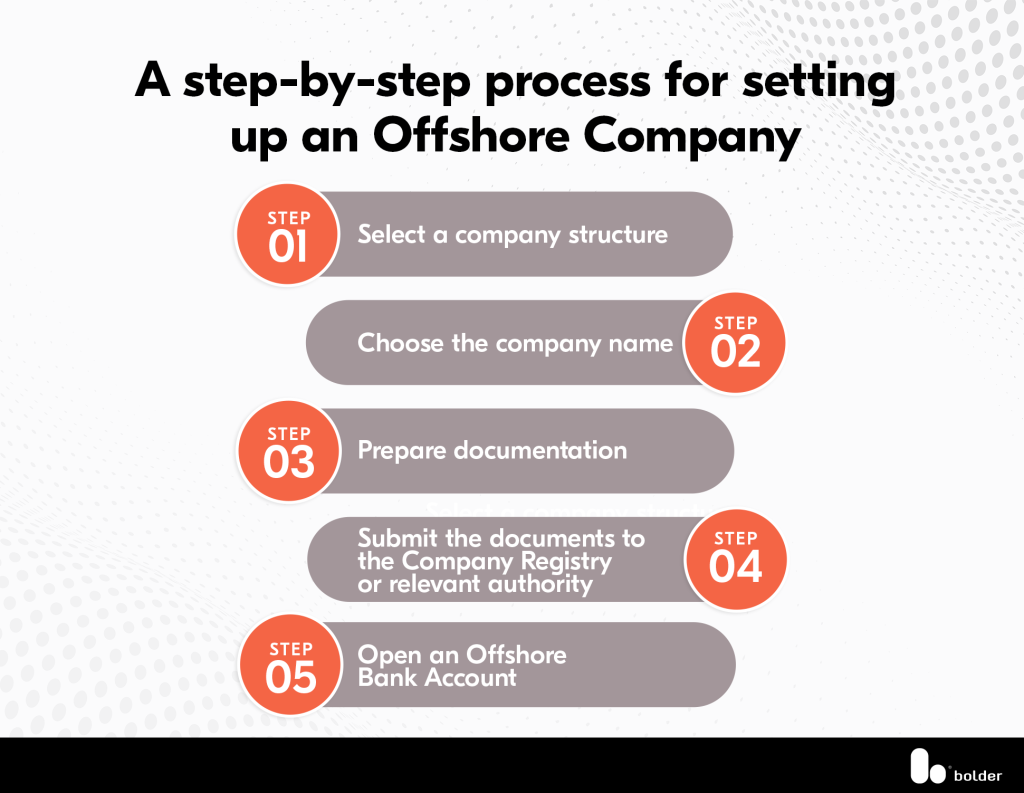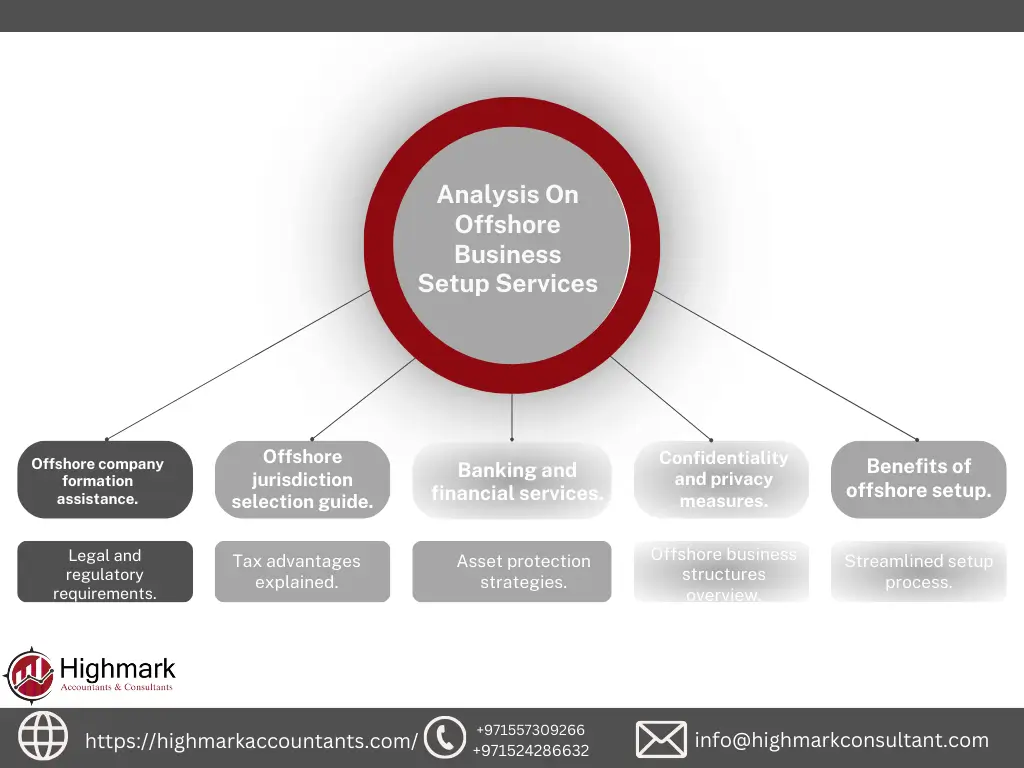How Offshore Company Formations Provide Legal Protection and Operational Freedom
Wiki Article
Checking Out the Solutions Offered in Offshore Business Formations: What You Required to Know
Offshore company formations supply a series of services developed to promote organization success while ensuring conformity with lawful demands. These services can include firm registration, legal advice, and arrangements for personal privacy via nominee directors. Additionally, considerations around tax optimization and asset security are crucial. Comprehending these aspects can greatly affect one's decision-making procedure. The intricacies of picking the right territory and steering with laws raise additionally inquiries. What should one think about next?Recognizing Offshore Business Frameworks
What specifies an offshore firm framework? An overseas company is usually signed up in a foreign territory, commonly characterized by positive regulative atmospheres and discretion. These structures are developed to give legal separation between the business's possessions and its proprietors, enabling a range of operational and monetary benefits. Offshore business can be established as various types, consisting of limited obligation companies (LLCs), corporations, or trusts, depending on the regulative framework of the selected jurisdiction.Key functions of these structures include improved personal privacy, possession security, and ease of worldwide organization transactions. Additionally, they commonly need minimal neighborhood existence and can assist in the management of financial investments throughout borders. The option of a certain offshore territory can considerably affect the operational capacities and compliance requirements of the business. Generally, comprehending the details of overseas business frameworks is crucial for business owners and financiers looking for to optimize their service methods.
Tax Advantages of Offshore Companies
Offshore business use significant tax obligation benefits that can improve earnings and financial efficiency for entrepreneur. Among the main advantages is the capacity for minimized business tax obligation prices, which can be significantly less than those in the proprietor's home country. Lots of overseas jurisdictions provide tax obligation motivations, such as tax vacations or exemptions on particular kinds of revenue. Furthermore, offshore firms might gain from favorable tax obligation treaties, permitting the decrease or removal of withholding tax obligations on returns, aristocracies, and passion. This can lead to enhanced money flow and far better reinvestment chances. Some offshore entities can operate under a territorial tax system, which only taxes earnings created within that territory. This framework can be particularly advantageous for companies involved in worldwide trade or on-line services, enabling them to enhance their tax commitments while keeping conformity with international regulations. Overall, these tax benefits can considerably contribute to long-term monetary success.Personal Privacy and Confidentiality Features
Exactly how can entrepreneur protect their sensitive details while taking advantage of international opportunities? Offshore company formations offer durable privacy and discretion attributes that appeal to business owners seeking discretion (Offshore Company Formations). Lots of jurisdictions provide candidate solutions, enabling individuals to assign 3rd celebrations as supervisors or investors, thus hiding their identifications from public documentsIn addition, strict information security regulations in countless overseas territories assure that delicate info remains private. Offshore firms commonly take advantage of improved financial privacy, with policies that protect customer identities and economic deals.
Moreover, making use of exclusive addresses for registered offices decreases exposure to public analysis.
These personal privacy steps make it possible for service proprietors to operate with greater confidence, knowing their delicate data is secure. By leveraging these functions, entrepreneurs can concentrate on strategic development possibilities without the continuous problem of information exposure.
Asset Security Approaches
While steering via the complexities of worldwide organization, business owners have to prioritize possession defense to safeguard their wealth from prospective dangers. Offshore firm formations offer robust strategies for alleviating exposure to legal insurance claims, financial institution actions, and political instability. One efficient technique entails developing a limited obligation business (LLC), which divides individual properties from service liabilities, therefore offering a shield against claims.Additionally, business owners can use depend hold properties, guaranteeing they remain safeguarded from lenders and lawful disputes. Jurisdictions with solid asset security laws, such as Nevis or the Cook Islands, are typically preferred for their beneficial regulations. Applying appropriate insurance policy plans and expanding investments further boosts safety and security, minimizing susceptability to market changes. In general, using these methods within an offshore framework not only promotes wide range conservation yet likewise promotes long-lasting financial security, allowing business owners to concentrate on development and innovation without undue problem over property exposure.

Opening Up Offshore Bank Accounts
Opening up offshore checking account includes comprehending the different account kinds available, which can accommodate various financial demands. Furthermore, the documents procedure is essential, as it usually needs particular kinds of recognition and proof of house. This review will certainly clarify the choices and demands for people and services seeking to develop offshore financial partnerships.Account Types Supplied
Offshore bank accounts can be found in numerous types, each made to accommodate various monetary requirements and objectives. Individual accounts are tailored for people looking for personal privacy and possession security, while business accounts assist in service deals and administration of company funds. Multi-currency accounts are popular amongst international investors, enabling purchases across different currencies without too much conversion fees. Furthermore, cost savings accounts use rate of interest on down payments, appealing to those seeking to grow their assets firmly. Some financial institutions likewise give investment accounts, giving clients accessibility to different financial investment possibilities. Each account type may feature unique advantages and attributes, allowing clients to choose the one that lines up finest with their economic methods and purposes. Understanding these alternatives is basic for efficient offshore banking.Required Documentation Process
To successfully open up an offshore bank account, prospective clients must prepare a set of particular documents that satisfy regulatory demands. This usually consists of a legitimate copyright or government-issued recognition to verify identification. Clients are likewise needed to provide evidence of home, such as an utility bill or financial institution statement, dated within the last three months. published here In addition, a thorough summary of the source of funds is needed to guarantee compliance with anti-money laundering policies. Some banks may request a business plan or referral letters, especially for business accounts. Each territory may have distinct demands; subsequently, seeking advice from a specialist in overseas solutions is recommended to determine all documents is accurate and complete, promoting a smoother account opening procedure.Compliance and Regulatory Considerations
Maneuvering the complexities of conformity and regulative considerations is necessary for any type of entity pursuing overseas firm developments. Entities need to comply with numerous worldwide and local laws that govern economic activities, tax, and corporate administration. Trick policies often consist of anti-money laundering (AML) laws, know your client (KYC) procedures, and coverage demands to guarantee openness.Additionally, business should stay alert about modifications in regulations that may influence their operational condition. Failing to comply can lead to extreme fines, including penalties or the dissolution of the business. Engaging with lawful and monetary experts that concentrate on offshore guidelines can give crucial support in guiding with these complexities.
In addition, understanding the ramifications of tax treaties and worldwide contracts is basic for keeping compliance. Companies should prioritize establishing robust compliance structures to mitigate risks and ensure long-term sustainability in their overseas endeavors.
Picking the Right Offshore Territory
Exactly how does one establish one of the most ideal overseas territory for business development? The selection of territory is vital and entails numerous elements. Initially, one need to evaluate the legal structure and regulations controling companies in possible jurisdictions. Beneficial tax programs, such as low or absolutely no company tax obligations, are typically a primary factor to consider. Furthermore, the political stability and online reputation of the territory play significant duties in making sure the security of assets and conformity with international criteria.The ease of access of financial solutions and the simplicity of doing business needs to not be overlooked. A jurisdiction offering durable discretion provisions can likewise be beneficial for those looking for personal privacy. Finally, assessing the costs related to firm development, upkeep, and prospective lawful fees is crucial. By considering these factors, one can make an educated decision, making sure that the picked overseas territory lines up with their business goals and operational demands.

Regularly Asked Questions
Just how Lengthy Does the Offshore Firm Formation Refine Normally Take?

The overseas company development procedure typically takes anywhere from a couple of days to several weeks. Offshore Company Formations. Elements affecting this timeline include jurisdiction, documents completeness, and specific solution carriers associated with the formation process
What Are the Initial Prices Associated With Setting up an Offshore Firm?
The preliminary costs for establishing an overseas company can differ commonly, generally incorporating registration costs, lawful expenses, and surcharges for solutions like bank account arrangement and compliance, typically completing numerous hundred to several thousand dollars.check my reference
Can People Form Offshore Companies Without Expert Support?
Individuals can practically create overseas companies separately; however, they typically encounter complicated lawful and regulative requirements. Offshore Company Formations. Specialist assistance is advised to browse these obstacles properly and guarantee conformity with pertinent laws and guidelinesWhat Files Are Needed for Offshore Company Registration?
The documents needed for offshore business enrollment commonly consist of identification evidence, a detailed service plan, evidence of address, and, in some territories, an affirmation of useful possession and resolutions from directors.Are There Recurring Maintenance Fees for Offshore Business?
Recurring maintenance charges for overseas business are typically required to ensure conformity with neighborhood laws. These charges may include annual revival fees, signed up agent services, and accounting, varying by jurisdiction and details business structure.
Report this wiki page